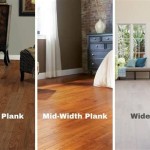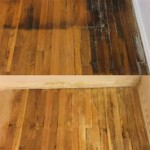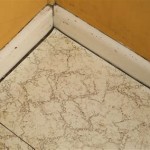Armstrong Resilient Vinyl Plank Flooring: A Comprehensive Guide
Armstrong Flooring is a recognized leader in the flooring industry, offering a wide array of flooring solutions. Among its offerings, resilient vinyl plank flooring stands out as a durable, versatile, and aesthetically pleasing choice for both residential and commercial applications. This type of flooring combines the visual appeal of natural materials like wood or stone with the practical benefits of vinyl, such as water resistance and ease of maintenance. This article provides a comprehensive overview of Armstrong resilient vinyl plank flooring, exploring its key features, benefits, types, installation, maintenance, and common considerations.
Understanding Resilient Vinyl Plank Flooring
Resilient vinyl plank flooring is a multi-layered product designed to mimic the look of natural materials. Its construction typically consists of several layers that contribute to its overall performance. Understanding these layers is crucial for appreciating the flooring's advantages.
The bottom layer, often called the backing layer, provides stability and helps to prevent the flooring from shifting or curling. Above the backing layer is the core layer, which provides the primary structural support. The core may be made from various materials, including fiberglass, solid vinyl, or composite materials, each offering different levels of rigidity and water resistance. The design layer sits atop the core, featuring a high-resolution image that replicates the look of wood, stone, or tile. Finally, a wear layer protects the design layer from scratches, stains, and fading. The thickness of the wear layer is a critical factor in determining the flooring's durability and suitability for different levels of foot traffic.
Armstrong offers different types of resilient vinyl plank flooring with varying thicknesses of wear layers to meet specific needs. These products are engineered to withstand everyday wear and tear, making them suitable for high-traffic areas like kitchens, hallways, and living rooms. The resilient nature of vinyl also provides a degree of comfort underfoot, making it a more comfortable option than harder flooring materials like ceramic tile or hardwood.
The term "resilient" refers to the flooring's ability to return to its original shape after being subjected to pressure or impact. This characteristic not only contributes to its durability but also makes it more forgiving than rigid flooring options. Armstrong's resilient vinyl plank flooring is designed to withstand the demands of daily life while maintaining its aesthetic appeal for years to come.
Key Benefits of Armstrong Resilient Vinyl Plank Flooring
Armstrong resilient vinyl plank flooring offers a multitude of benefits that make it a popular choice for homeowners and businesses alike. These benefits range from its aesthetic appeal to its practical advantages in terms of durability and maintenance.
One of the primary benefits is its aesthetic versatility. Armstrong offers a wide variety of designs, colors, and textures that mimic the look of natural materials. This allows individuals to achieve the desired aesthetic without the expense and maintenance associated with real wood, stone, or tile. Whether the desired look is a rustic hardwood floor or a sleek stone tile, Armstrong provides options to suit diverse design preferences.
Durability is another key advantage. The wear layer protects the flooring from scratches, stains, and fading, making it suitable for high-traffic areas and households with pets or children. The waterproof properties of vinyl make it an ideal choice for kitchens, bathrooms, and basements, where moisture is a concern. Unlike hardwood, vinyl plank flooring will not warp or swell when exposed to water, making it a more reliable option for these areas.
Ease of maintenance is a significant factor for many individuals. Armstrong resilient vinyl plank flooring is easy to clean and maintain, requiring only regular sweeping or vacuuming and occasional damp mopping. Unlike some other flooring materials, it does not require specialized cleaning products or treatments. This simplifies the cleaning process and saves both time and money.
Installation is relatively straightforward, with options for both glue-down and click-lock systems. The click-lock system allows for a floating floor installation, which can be easier and faster for DIY projects. This can reduce installation costs compared to flooring options that require professional installation.
Finally, Armstrong resilient vinyl plank flooring offers a cost-effective alternative to natural materials. It provides the look and feel of wood or stone at a fraction of the cost, making it an attractive option for individuals on a budget. Its durability and low maintenance requirements also contribute to its long-term cost savings.
Types of Armstrong Resilient Vinyl Plank Flooring
Armstrong offers a variety of resilient vinyl plank flooring options, each with its own unique features and benefits. Understanding the different types can help individuals choose the best flooring for their specific needs and preferences.
One classification is based on the installation method, which includes glue-down and click-lock systems. Glue-down planks are adhered directly to the subfloor using adhesive. This method provides a secure and stable installation, but it can be more labor-intensive and requires a smooth, level subfloor. Click-lock planks, on the other hand, feature interlocking edges that allow the planks to be connected without the need for adhesive. This method is faster and easier, making it a popular choice for DIY projects. The click-lock system also allows for a floating floor installation, which means the flooring is not directly attached to the subfloor, providing some flexibility and cushioning.
Another classification is based on the construction of the plank, which includes solid vinyl, composite core, and enhanced vinyl plank (EVP). Solid vinyl planks are made entirely of vinyl, providing excellent water resistance and durability. Composite core planks feature a core layer made from a blend of materials, such as wood plastic composite (WPC) or stone plastic composite (SPC). WPC cores offer a more comfortable feel underfoot and can help to absorb sound, while SPC cores are more rigid and resistant to indentation. EVP planks are a type of rigid core flooring that offer exceptional durability and stability.
The wear layer thickness is another important factor to consider. Armstrong offers planks with varying wear layer thicknesses, typically ranging from 6 mil to 20 mil or more. Thicker wear layers provide greater protection against scratches, stains, and fading, making them suitable for high-traffic areas and commercial applications. Thinner wear layers may be sufficient for residential use in areas with less foot traffic.
Armstrong also offers different collections of resilient vinyl plank flooring, each with its own unique designs, colors, and textures. These collections are designed to cater to different aesthetic preferences and design styles. Some collections focus on replicating the look of traditional hardwood floors, while others offer more contemporary designs with unique patterns and textures.
Installation and Maintenance
Proper installation and maintenance are crucial for ensuring the longevity and performance of Armstrong resilient vinyl plank flooring. Following the manufacturer's instructions and adopting a regular cleaning routine can help to keep the flooring looking its best for years to come.
Before installation, it is important to prepare the subfloor properly. The subfloor should be clean, dry, and level. Any imperfections in the subfloor can telegraph through the flooring, so it is important to address any issues before installation. For glue-down installations, the subfloor should also be free of any adhesive residue or contaminants that could interfere with the bonding of the adhesive. For click-lock installations, an underlayment may be recommended to provide additional cushioning and sound absorption.
During installation, it is important to follow the manufacturer's instructions carefully. For glue-down installations, apply the adhesive evenly and allow it to tack up before installing the planks. For click-lock installations, ensure that the planks are properly aligned and locked together securely. Use appropriate tools and techniques to avoid damaging the planks during installation.
After installation, it is important to protect the flooring from damage. Use floor protectors under furniture legs to prevent scratches and dents. Place mats or rugs in high-traffic areas to protect the flooring from dirt and wear. Avoid dragging heavy objects across the floor, as this can cause scratches or gouges.
Regular maintenance is simple and straightforward. Sweep or vacuum the floor regularly to remove dirt and debris. Damp mop the floor as needed using a mild detergent and water. Avoid using harsh chemicals or abrasive cleaners, as these can damage the wear layer. Wipe up spills immediately to prevent staining. For more stubborn stains, follow the manufacturer's recommendations for spot cleaning.
By following these installation and maintenance guidelines, individuals can ensure that their Armstrong resilient vinyl plank flooring will provide years of beauty and performance.
Common Considerations and Potential Drawbacks
While Armstrong resilient vinyl plank flooring offers numerous benefits, there are also some potential drawbacks to consider before making a decision. Understanding these considerations can help individuals make an informed choice that meets their specific needs and expectations.
One potential drawback is the possibility of indentation. While resilient vinyl plank flooring is designed to withstand everyday wear and tear, heavy objects or concentrated pressure can cause indentations, especially on planks with thinner wear layers or softer core materials. To minimize the risk of indentation, use floor protectors under heavy furniture and avoid placing extremely heavy objects directly on the floor.
Another consideration is the potential for fading. While the wear layer provides protection against fading, prolonged exposure to direct sunlight can still cause the flooring to fade over time. To minimize fading, use curtains or blinds to block direct sunlight during peak hours.
While vinyl plank flooring is waterproof, it is important to address spills and leaks promptly to prevent water from seeping under the flooring. Water that accumulates under the flooring can lead to mold growth or damage to the subfloor. Ensure that the subfloor is properly sealed and that any gaps or cracks are filled to prevent water intrusion.
Another consideration is the environmental impact of vinyl flooring. Vinyl is a synthetic material that is derived from petroleum. While Armstrong is committed to sustainability and offers some vinyl flooring products made from recycled materials, the environmental impact of vinyl flooring is still a concern for some individuals. Consider exploring alternative flooring options made from sustainable materials if environmental impact is a primary concern.
Finally, it is important to choose the right type of vinyl plank flooring for the intended application. Planks with thicker wear layers are more suitable for high-traffic areas and commercial applications, while planks with thinner wear layers may be sufficient for residential use in areas with less foot traffic. Consider the level of foot traffic and the potential for wear and tear when selecting the appropriate type of flooring.

Resilient Vinyl Flooring Armstrong Aust Com

Armstrong Flooring Vinyl Plank At Com

Armstrong Flooring Luxe W Rigid Core Cau Gray 20 Mil X 7 In 48 L Water Resistant Interlocking Luxury Vinyl Plank At Com

Armstrong Pryzm Waterproof Vinyl Plank Flooring Together Page 3

Armstrong Vinyl Flooring

Floor City Commercial Flooring Michigan Supply

Armstrong Flooring Luxe W Rigid Core Gunstock 20 Mil X 6 In 48 L Water Resistant Interlocking Luxury Vinyl Plank At Com

Athens Ga Atlanta Hardwood Floors Laminate Carpet Ceramic Tile Vinyl

Ahf S Introduces Armstrong Flooring American Personality Pro Luxury Vinyl Floor Trends Installation

Armstrong Hardwood Flooring
Related Posts








